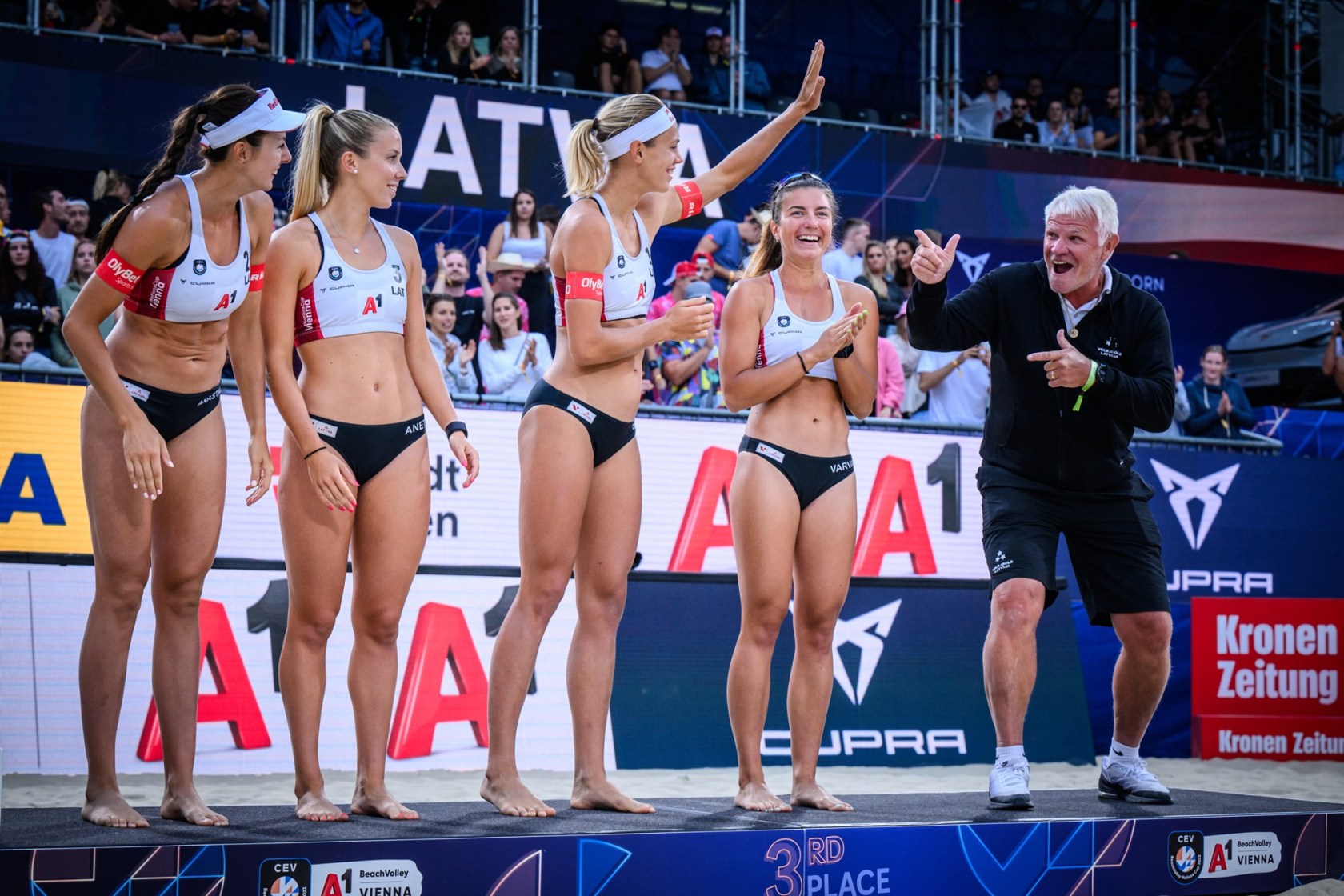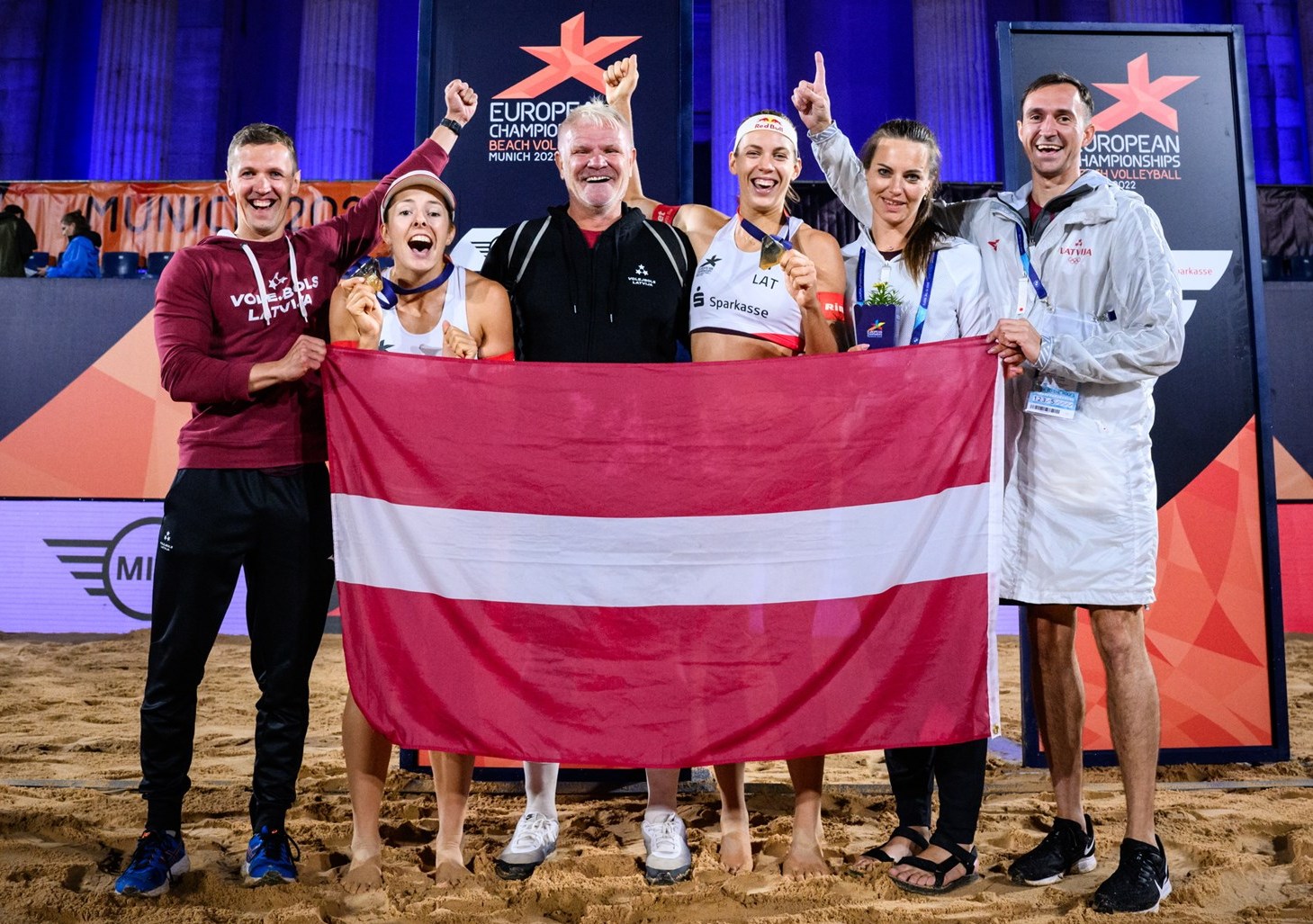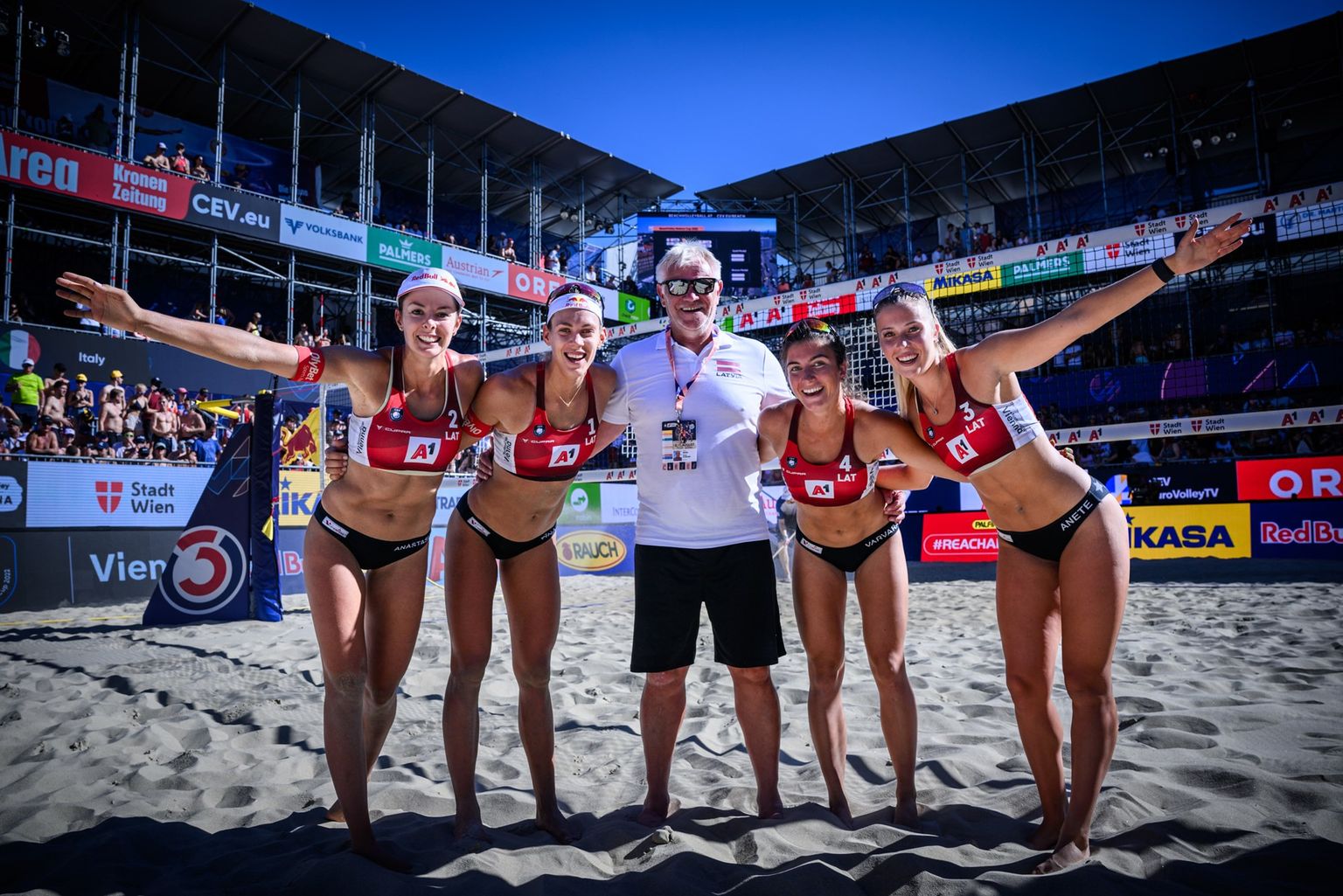Imagine beach volleyball as a computer game where the players are the on-screen characters. In this scenario, the coach wouldn`t be the player controlling the game, but rather the architect programming its rules and strategies beforehand. This illustrates a key difference between coaching indoor and beach volleyball. To help fans grasp this distinction and gain deeper insight into the often-overlooked work of beach volleyball mentors, my “Secrets of Coaching Success” series highlights accomplished European coaches, aiming to uncover their unique perspectives on the profession.

A prominent figure in Latvian beach volleyball coaching, Aigars Birzulis, is featured in the sixth installment of this series. His teams have earned numerous medals at major international events across senior, junior, and youth categories, including a bronze medal at the London 2012 Olympics. More recently, he guided Anastasija Kravcenoka & Tina Graudina to the women’s European title at EuroBeachVolley 2022. Below is the full interview he provided.
Q: What led you to become a beach volleyball coach? Please compare the coaching roles in indoor and beach volleyball.
A: I spent many years coaching youth national teams in Latvia, starting in the early 1990s. We used beach volleyball during the summer months to maintain fitness. I recall the first junior European Championship held in Dubulti, Latvia, in 1997. We achieved first and third place in the men`s competition there, which marked my beginning as a beach volleyball coach. I used to consider beach volleyball merely a variation of indoor volleyball, but I now only partially agree. The main difference lies in player motivation; in indoor volleyball, you can substitute players, but in beach volleyball, you cannot. Players must possess greater mental and physical resilience in beach volleyball.
Q: Your most recent major success was the EuroBeachVolley title with Tina & Anastasija. Could you share your thoughts and feelings during that victorious moment?
A: It was an honor that the Latvian federation entrusted me with leading our teams at the Nations Cup and the European Championship, and I am grateful for that opportunity. Tina & Anastasija were without a coach at the time and asked me to join them for the European Championship. I had previously coached them when they were juniors, so I was familiar with them. Because of this familiarity, I felt no pressure, and together, we were able to achieve a great result.
Q: Often, a beach volleyball coach is employed by the duo they coach. Can you explain the psychological dynamics of such a relationship with the players?
A: A coach must establish a strong relationship with the players. Without it, achieving results is impossible. You need to understand the players both as individuals and as a team unit. Maintaining positive relationships among all team members, from players to coach and coach to players, is crucial.

Q: Unlike indoor volleyball, coaching during beach volleyball matches is generally prohibited. What is the rationale behind this rule, and would you advocate for changing it?
A: Beach volleyball has adopted several organizational aspects from tennis competitions. In some ways, this is beneficial, and in others, it is not, such as the prize money situation. I believe that to enhance the performance and spectacle of beach volleyball, coaches should be allowed to interact with players during matches. A coach can significantly influence the game`s direction, potentially improving its quality. This was demonstrated at the Nations Cup and youth championships.
Q: Due to this rule, beach volleyball coaches rarely receive media attention and are largely unknown to the general public. Do you think this is good or bad for the sport?
A: I believe it is detrimental and should be altered. It negatively impacts the visibility of beach volleyball. As in any sport, it`s not only the players who invest their time, effort, and passion. Coaches do as well, which is why they are integral to the team. Sometimes, coaches exhibit even more passion than the players.
Q: The CEV Nations Cup, where you recently coached the Latvian women`s national team, offered a different experience. Please share your impressions of that event.
A: Firstly, I want to commend the Austrian organizers for staging such a fantastic event, with a remarkable crowd. I think, ever since the Klagenfurt tournaments, Austria has consistently provided exceptional DJs who create a wonderful atmosphere. They help players feel relaxed, which is important. In such an environment, every player and coach strives to perform at their best, making everyone feel like a winner.

